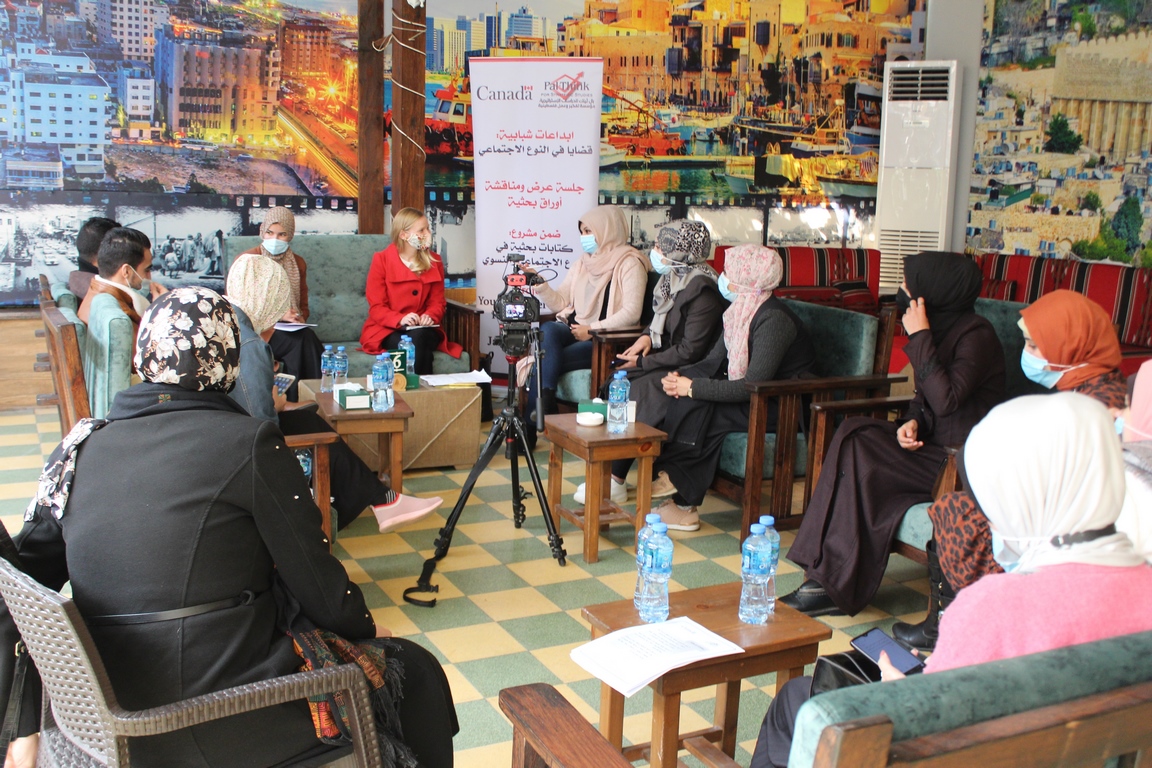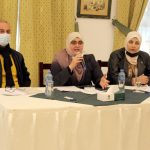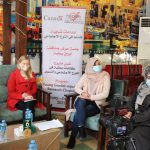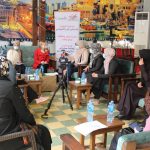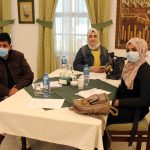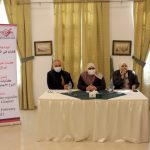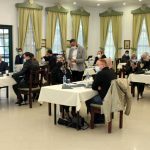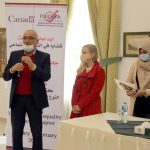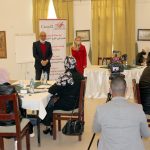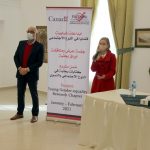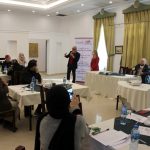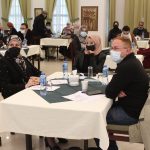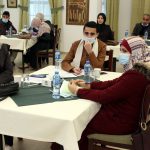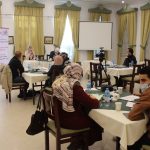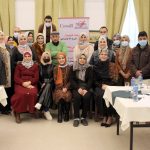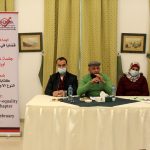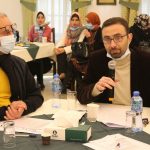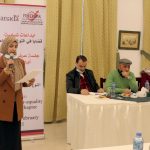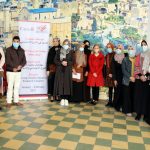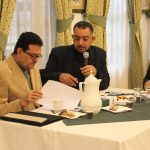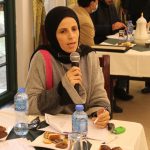Pal-Think for Strategic Studies organized a workshop to discuss four research papers, as a part of “the young gender equality research chapter’s project”. These papers dealt with Palestinian women issues. The Political attaché at the Canadian Representative, Ms Andrea Nicklos, attended the workshop with several researchers, civil society organizations representatives, activist and human rights centres.
Pal-Think’s Project Coordinator, Mrs Sally AlSammak, opened the meeting by welcoming the attendees and said that Pal-Think is an independent institution working in the area of research and community reconciliation, it believes in the capacities of young people and works with them continuously to strengthen their capacities and to play their role in all areas through its various projects.
She continued that the idea of this project is to enable young people to use appropriate scientific tools to develop their capacity in their writing. As well as, to address issues of their own, to highlight women’s issues and to contribute to finding solutions to them.
AlSammak also explained that this project focuses on the subject of women because of their important role in society. She hoped that the participants’ papers would reach out to the decision-makers.
She also noted that ten radio episodes discussing research papers had been produced and that there would also be digital campaigns for women’s rights through social media.
Then Pal-Think’s director, Mr Omar Shaban, welcomed the political attaché of the Canadian representative, Ms Andrea Niklos. After that, he said that they are happy that this is a project about women, and the women participants were three times to men participants on the project.
He added that the Canadian political position has evolved significantly in recent years and is distinct from that of other States, as represented by the continued support of the Government of Canada for the Palestinian people and the Palestinian cause and its rejection of the deal of the century
Shaban stressed that his organization deliberately exported young people. Then he clarified that for his organization, adding youth are rapporteurs, not consumers.
In turn, the political attaché, Ms Andrea Nichlos, said that she was happy to be in Gaza again. And noted that this is her first visit to Gaza since the beginning of the Corona pandemic.
She further stated that this programme was great, and she always wishes all young men and women excellence and influence for a better reality. Ms Nichilas confirmed the Government of Canada support for the Palestinian people.
During Nichlos’s meeting with young participants, she discussed the issues they had worked on throughout the project, and the main challenges they faced during the preparation of their research papers. Young people also spoke about their future aspirations and the importance of continuing their participation in such activities, which would allow them to express themselves and their issues. As well as, their ability to discuss their situation in the context of the crises which facing young people by developing their clerical skills and to reach out their voices to decision-makers.
Young people also discussed with Ms Nichlos their opinions on the upcoming elections and expressed their hope that they would achieve them with integrity. They stressed that the announcement of the upcoming elections was a strong indicator of change for the better. They also hoped that it would be a successful start to the development of society and the resolution of all its crises.
As for the research paper discussion, at the first session conducted by the project’s trainer, the lawer Mrs Heba Al-Dhanaf, the project’s co-researchers Saddam Al-Ghandour and Maryam Abu Amra addressed in their paper the importance of integrating and empowering women with disabilities into economic life, and the personal benefit of improving their standard of living and increasing their rate of participation in the labour market. The paper presented some mechanisms that could improve the income of persons with disabilities in the labour market.
Researchers Hanin Al-Amassi and Areej Jread indicated that the paper’s main objective was to highlight the gap between the traditional role and the new role of women outside the home. The paper outlined the challenges facing Palestinian women’s entry into professional work, and mentioned majors where women could study in the Gaza Strip. They also presented some successful experiences of women in their work. The two researchers provided mechanisms to overcome the challenges facing women in professional work.
During the second session conducted by Mr Yahya Qaoud, researchers Dinah Ismail and Nashwa Rizk discussed in their paper the role of women’s guidance committees in supporting local emergency committees in the face of the Corona pandemic in the northern governorates of Palestine. The paper also mentioned the objectives of the Committee and the obstacles it faces.
Researchers Ahmed AlSammak and Mona AlMsaddar addressed the consequences of the Corona pandemic on women’s psychological service recipients in the Gaza Strip, as well as the impact of social distancing and safety measures on their mental health. AlSammak also reviewed governmental and non-governmental institutions providing psychological support and the obstacles they face. The paper made recommendations to improve the provision of psychological services to citizens in the event that mass lockdown was re-imposed.
“The designations employed and the representation of material in this program do not imply the expression of any opinion whatsoever on the part of the Government of Canada.”

